Labor Market Trajectories for Community College Graduates: New Evidence Spanning the Great Recession
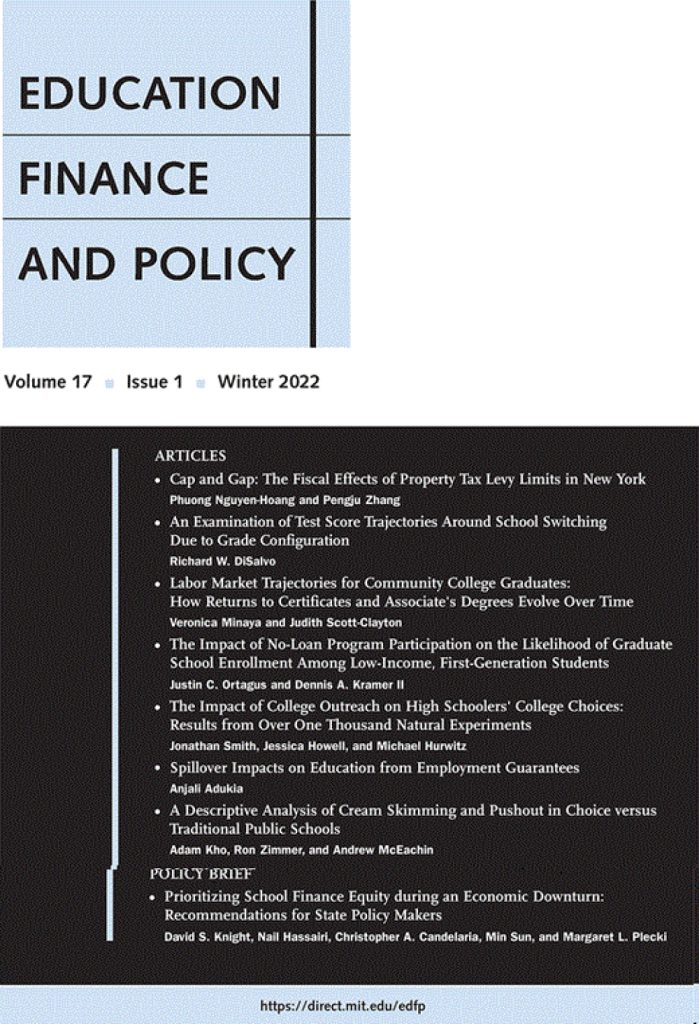
This paper examines returns to terminal associate degrees and certificates up to 11 years after students initially entered a community college in Ohio. The authors use an individual fixed-effects approach that controls for students’ pre-enrollment earnings and allows the returns to credential completion to vary over time.
The Labor Market Returns to For-Profit Higher Education: Evidence for Transfer Students
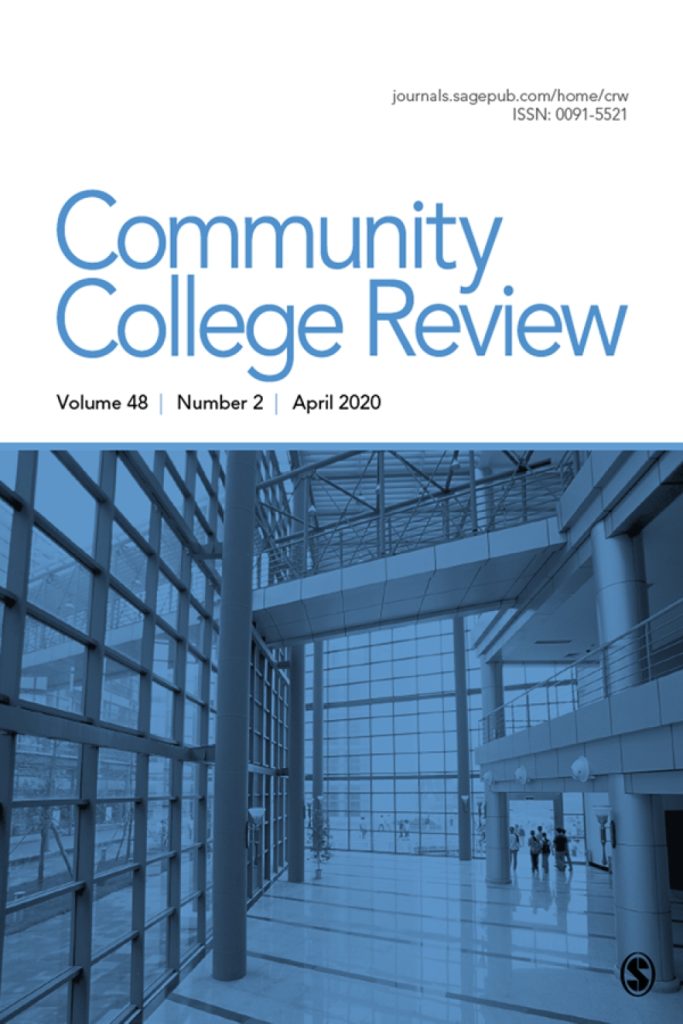
This paper examines the labor market gains for students who enrolled at for-profit colleges after beginning their postsecondary education in community college.
The False Dichotomy Between Academic Learning and Occupational Skills
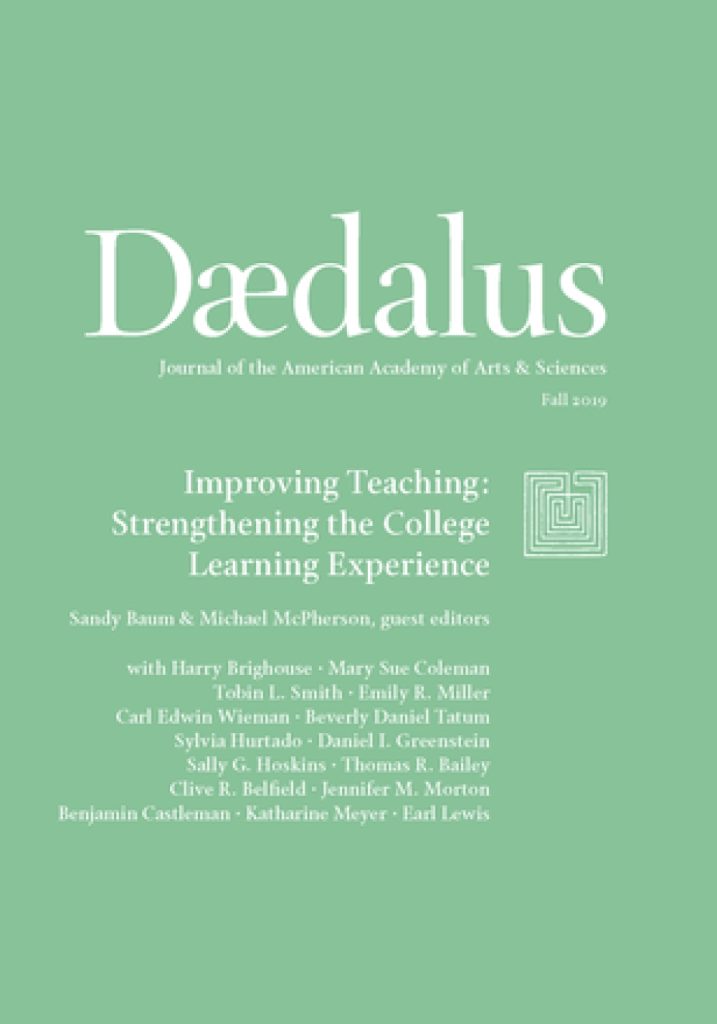
This essay compares broad academic and vocational program goals, embodied skills, tasks, and jobs, with a focus primarily on community college students.
Nonpecuniary Returns to Postsecondary Education: Examining Early Non-Wage Labor Market Outcomes Among College-Goers in the United States
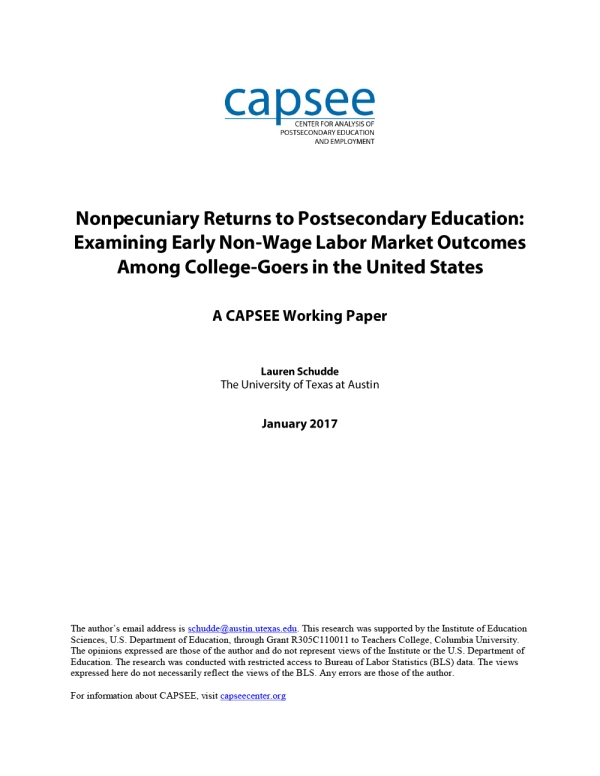
Using data from the National Longitudinal Survey of Youth 1997, this CAPSEE working paper examines nonpecuniary labor market outcomes associated with different levels of postsecondary educational attainment.
The Evolving Mission of Workforce Development in the Community College
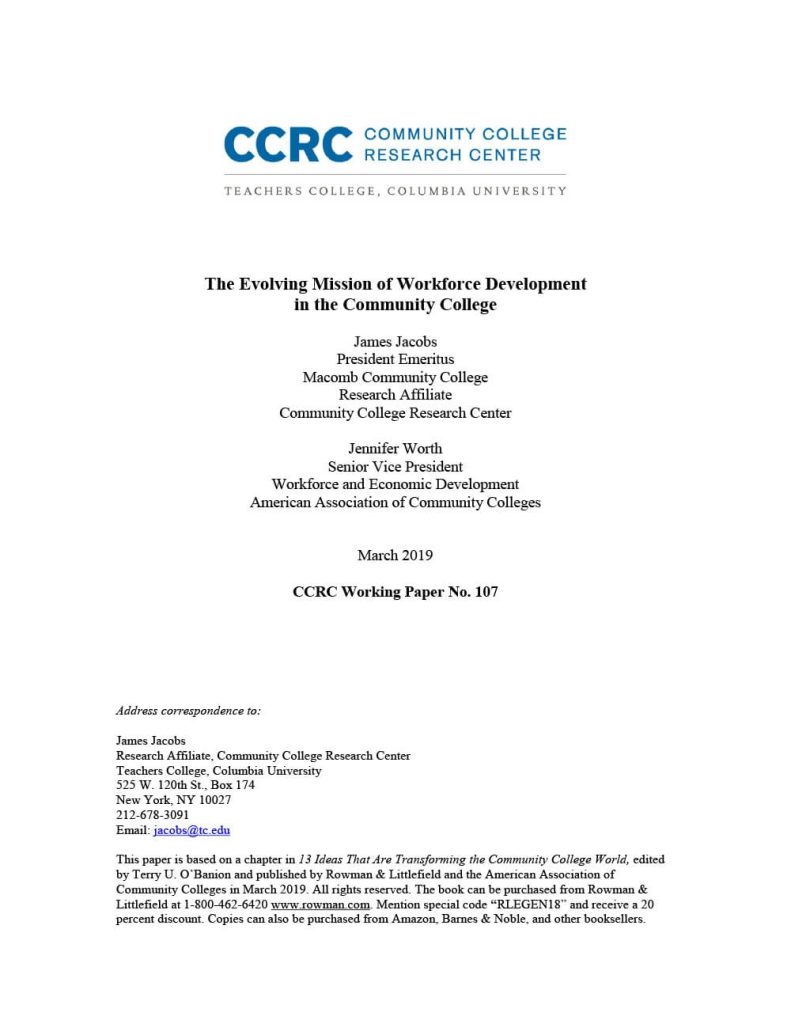
This paper describes how community colleges became a major resource for the nation’s workforce development requirements and discusses how this role continues to evolve to meet the needs of students, employers, and local communities.
